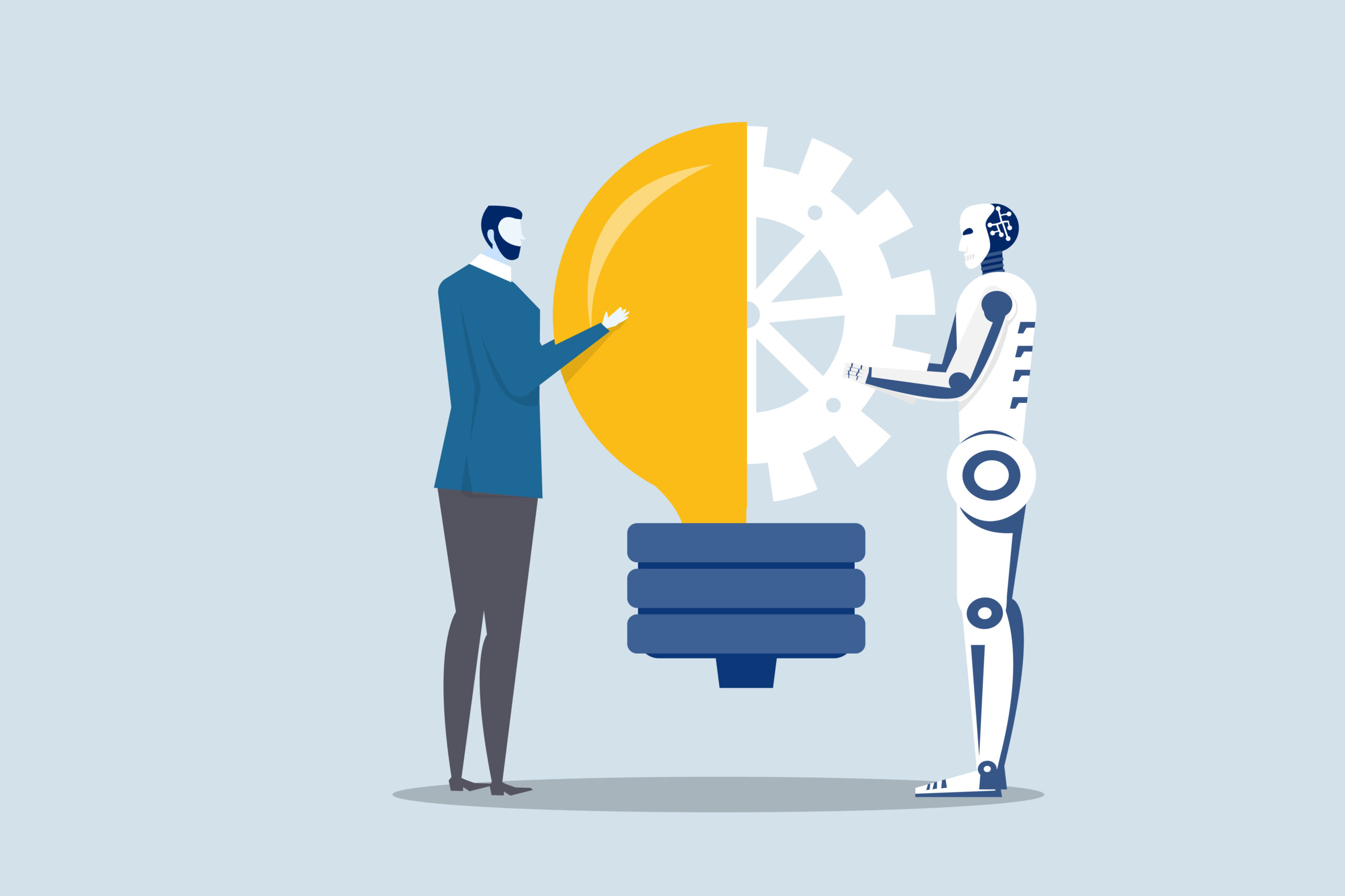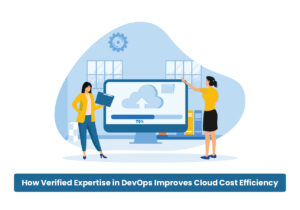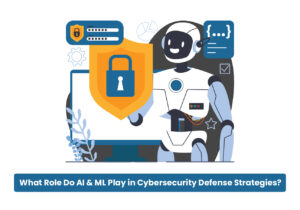In 2025, the conversation around technology has shifted from “whether” we should use AI and ML in DevOps to “how fast” we can adopt them. Businesses worldwide are racing to integrate intelligent automation, predictive insights, and adaptive systems into their software delivery pipelines. The result? Faster releases, fewer errors, and teams that spend less time firefighting and more time innovating.
This article explores how AI and ML are shaping the future of DevOps, what trends are dominating this year, and why companies can no longer afford to ignore the opportunities these technologies bring.
Role of AI and ML in DevOps
Traditionally, DevOps has been about combining development and operations to achieve continuous integration and continuous delivery (CI/CD). While this approach solved many bottlenecks, it still left teams vulnerable to human errors, system downtime, and unpredictable failures.
Enter AI and ML. By using algorithms that learn from data, DevOps teams now gain insights that go beyond what humans can manually analyze. From spotting hidden patterns in system logs to predicting failures before they happen, AI in DevOps 2025 is no longer just a luxury,it’s becoming the backbone of efficient workflows.
Fixing Tomorrow’s Problems Today
One of the most exciting applications of AI and ML in DevOps is predictive analytics. Imagine knowing that a server will crash hours before it happens or predicting a deployment bottleneck before code even goes live. With predictive analytics in DevOps, machine learning models use historical data, error logs, and performance trends to foresee potential issues.
This shift reduces downtime, saves costs, and improves customer satisfaction because users no longer experience sudden disruptions. In 2025, predictive monitoring has become a standard expectation rather than an innovation.
DevOps Automation with AI
Automation has always been central to DevOps, but DevOps automation with AI takes it to the next level. Instead of writing scripts for every scenario, teams now rely on intelligent systems that adapt and self-correct. For example:
- CI/CD pipelines enhanced by AI automatically detect flawed code before it hits production.
- Intelligent bots suggest fixes for misconfigurations.
- Systems scale infrastructure up or down in real time based on demand patterns.
The concept of AI-enhanced CI/CD pipelines ensures faster releases with fewer rollbacks. This level of automation saves hundreds of developer hours every year.
Building Intelligent Pipelines with AI
AI-driven DevOps means more than just automation,it’s about intelligence woven into every stage of the workflow. From planning to monitoring, AI tools act as silent partners that guide decisions. For instance, ML-powered DevOps pipelines don’t just automate testing; they learn from past bugs and prioritize areas most prone to failure.
This kind of intelligent prioritization reduces testing cycles and ensures higher quality releases. The future of DevOps with AI is not just faster pipelines, but smarter ones.
How AI and ML Are Changing Monitoring
Monitoring used to mean checking dashboards and alerts. In 2025, AI and DevOps monitoring has become proactive and predictive. Instead of overwhelming teams with alerts, AI systems analyze log data, filter noise, and notify only when there’s a true anomaly.
This smarter alerting system reduces “alert fatigue,” which has been a major challenge in operations. Teams can now focus on solving critical problems rather than wasting time on false alarms.
AIOps Trends 2025
The rise of AIOps trends 2025 has brought a new level of sophistication. AIOps refers to the application of AI to IT operations, where algorithms handle log analysis, anomaly detection, and even automated incident resolution.
Key trends dominating this year include:
- Self-healing systems that auto-resolve common errors.
- Cross-team collaboration driven by AI dashboards.
- Deeper cloud integration where AI optimizes cloud costs and resources.
These trends are no longer experimental; they are becoming mainstream, making AIOps one of the fastest-growing sectors in IT.
Artificial Intelligence in DevOps Workflows
From development environments to release cycles, artificial intelligence in DevOps workflows adds intelligence at every step:
- During coding, AI tools suggest best practices and detect security flaws.
- In testing, ML algorithms focus on high-risk areas.
- In deployment, AI predicts user traffic spikes and prepares infrastructure.
- Post-deployment, monitoring systems learn from user behaviour to guide future updates.
This holistic integration shows how far we’ve come since the early days of DevOps.
The Future of DevOps with AI and ML
Looking ahead, the DevOps future with AI and ML is about more autonomy and less manual intervention. Teams will evolve from “managing systems” to “managing outcomes.” AI will handle infrastructure, alerts, and optimization, while developers focus on creativity and user experience.
In this future, businesses that embrace AI DevOps tools in 2025 will deliver better products, faster and with fewer resources. Those who don’t may find themselves struggling to compete.
Real-World Use Cases in 2025
- E-commerce Platforms: Using AI and ML to predict demand spikes during sales and scale servers automatically.
- Banking Applications: Detecting fraudulent transactions in real time using ML models integrated with CI/CD workflows.
- Healthcare Systems: Automating compliance checks with AI-driven DevOps pipelines to ensure patient data protection.
- Media Companies: Improving video streaming by predicting network bottlenecks and resolving them before user experience is affected.
These real-world examples prove that machine learning in DevOps is not just theory,it’s powering industries every day.
Challenges of AI and ML in DevOps
While the opportunities are enormous, challenges exist:
- Data dependency: ML models need quality data, and bad inputs can lead to poor predictions.
- Skill gaps: Not all DevOps teams are trained in handling AI tools.
- Costs: Setting up AI pipelines requires investment in infrastructure and training.
Still, the benefits often outweigh these hurdles, and companies that adapt quickly reap long-term rewards.
AI and ML Beyond 2025
By the late 2020s, AI and ML in DevOps will evolve into fully autonomous systems capable of managing entire pipelines with minimal human oversight. Combined with edge computing and 5G networks, deployments will be faster, smarter, and more secure.
Businesses will no longer ask, “Should we use AI in DevOps?” Instead, the question will be, “How much of our pipeline can we hand over to AI safely?”
AI DevOps Tools in 2025
The surge of AI and ML has led to a wave of tools designed specifically for DevOps teams. Unlike traditional monitoring or automation solutions, these platforms come with built-in intelligence that learns and adapts. Some of the most recognized categories include:
- AI-driven CI/CD platforms: Tools that automatically optimize deployment pipelines and reduce manual intervention.
- Predictive monitoring systems: AI bots that scan logs, predict outages, and auto-resolve small issues before humans notice.
- ML-powered analytics dashboards: Solutions that study code quality, performance metrics, and user behavior to guide decisions.
AI DevOps tools 2025 like Harness, Dynatrace, Splunk AIOps, and Moogsoft are leading the charge, offering capabilities that blend automation with intelligence.
The beauty of these tools is not just in automation,it’s in learning from patterns and continuously improving, something traditional DevOps systems could never do.
The Change from Manual Effort to Smart Solutions
DevOps has always been more than tools,it’s a cultural mindset. Now with AI and ML, that culture is changing again. Teams that were once reactive are becoming proactive. Instead of running to fix servers after they crash, they now get early warnings and can prepare in advance.
The introduction of AI-enhanced CI/CD pipelines also frees engineers from repetitive testing and monitoring tasks. This doesn’t replace jobs; it shifts the focus to creativity, innovation, and collaboration. In fact, the future of DevOps with AI will likely require developers to be more strategic thinkers than ever before.
Security Gets Smarter with AI and ML
Security has always been a pain point in DevOps. But in 2025, AI and ML are making security faster and stronger. Here’s how:
- Automated Threat Detection: AI scans for unusual patterns in real time, reducing the risk of unnoticed breaches.
- Vulnerability Prediction: ML models identify weak points in code before attackers do.
- Continuous Compliance: AI ensures deployments meet security and regulatory standards without slowing down delivery.
By blending artificial intelligence in DevOps workflows, businesses reduce risks and build user trust. For industries like healthcare and finance, this can be the difference between success and disaster.
Real Case Example: Banking Industry
Consider a bank rolling out mobile features for millions of users. In the past, any downtime could mean millions lost. By using ML-powered DevOps pipelines, the bank now predicts traffic surges, spots security anomalies, and automates rollback strategies when needed.
This integration has reduced downtime by nearly 40% and improved customer trust. It’s a perfect example of how AI and DevOps monitoring go hand in hand to protect both revenue and reputation.
Why Small Businesses Should Care
There’s a common myth that AI-driven DevOps is only for big corporations with huge budgets. The truth? Even startups and small businesses can benefit.
Cloud providers now offer AI and ML features baked into affordable DevOps solutions. For example, predictive scaling and auto-healing are often included in modern cloud hosting packages. This means a growing e-commerce store or a local service app can access the same level of intelligence once reserved for tech giants.
For smaller teams, DevOps automation with AI doesn’t just cut costs,it levels the playing field against much larger competitors.
Preparing Teams for AI and ML in DevOps
While tools matter, the real challenge is preparing teams. Businesses need to:
- Upskill employees in AI basics so they understand how algorithms guide decisions.
- Encourage collaboration between DevOps engineers, data scientists, and business leaders.
- Adopt a growth mindset,viewing AI not as a replacement, but as a partner that enhances human ability.
In many organizations, the biggest hurdle is not technology, but culture. Once teams embrace change, the shift to AI-driven DevOps becomes much smoother.
Long-Term Outlook: DevOps Future with AI and ML
Looking beyond 2025, here’s what experts predict:
- Fully autonomous deployments: where AI handles end-to-end rollouts with almost zero human touch.
- Deeper personalization: AI tailoring workflows for individual developers based on their coding styles.
- Voice-assisted DevOps: where developers interact with pipelines through natural language commands.
- Cross-industry integration: from manufacturing to healthcare, every sector is embedding AI and ML into its operations.
The DevOps future with AI and ML is not just about speed, but about resilience, intelligence, and continuous learning.
Why This Change Matters for Every Business
Every company that delivers software, whether it’s a small online store or a global enterprise, faces the same challenge: user expectations. Customers now expect zero downtime, lightning-fast apps, and secure platforms.
Without AI-enhanced CI/CD pipelines, achieving this standard is nearly impossible. Competitors that adopt AI in DevOps 2025 will release faster, recover quicker, and offer more reliable services. Those who delay adoption risk falling behind.
Smarter DevOps Solutions by Prismatic Technologies
At Prismatic Technologies, we believe DevOps isn’t just about speed; it’s about working smarter. By bringing AI and ML into your DevOps workflows, we help businesses move from repetitive manual tasks to intelligent, automated processes.
Our team designs AI-driven DevOps pipelines that predict issues before they happen, optimize resources in real time, and reduce downtime. Whether it’s building AI-enhanced CI/CD pipelines, setting up predictive monitoring systems, or integrating AIOps tools for smarter automation, we tailor solutions to fit your business needs.
The result? Faster releases, fewer errors, and a DevOps culture that focuses on innovation instead of firefighting. With Prismatic Technologies as your partner, you don’t just keep up with the future, you lead it.
FAQs
- What is the role of AI in DevOps 2025?
AI in DevOps 2025 helps automate workflows, predict system failures, optimize resources, and improve monitoring through intelligent analytics.
- How does machine learning in DevOps improve pipelines?
ML-powered DevOps pipelines analyze past data to predict bugs, prioritize testing, and ensure smoother deployments.
- What are AIOps trends in 2025?
Key AIOps trends include self-healing systems, deeper cloud optimization, and advanced anomaly detection to reduce downtime.
- Can AI and DevOps monitoring replace human teams?
No. AI reduces repetitive tasks and alert fatigue, but humans still make critical decisions and handle complex issues.
- Why choose Prismatic Technologies for AI in DevOps?
Because we bring technical expertise, industry insights, and tailored strategies that help businesses adopt AI and ML seamlessly for lasting impact.


